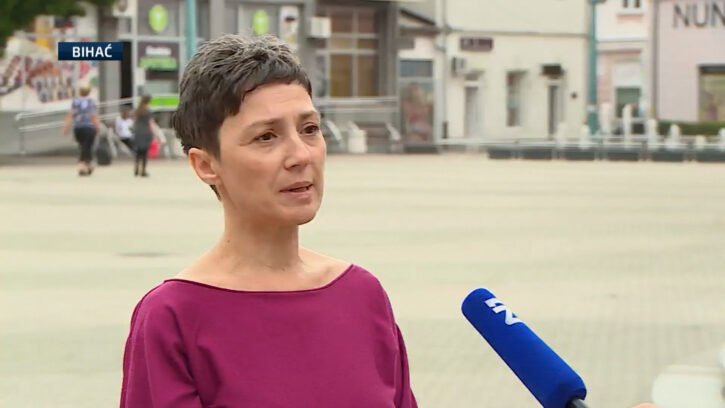
Una-Sana Canton's Health care Ministry has warned from the very beginning that the new migrant centre Vucjak in the North-Western part of Bosnia was absolutely unacceptable from the hygienic and epidemiological standpoint and said it could host a whole range of health issues which we would not be able to take care of, Jasminka Ljubijankic, the Director of the Bihac Health Care Centre told N1.
“The biggest threat at the moment are intestinal infections, then come skin diseases, because migrants can't maintain adequate hygiene. We are mostly wary of large epidemics of intestinal diseases for which the hospital will not have the capacity to cope. The other thing that I am afraid of is that people in this inadequate housing will be very frustrated and clash very often. The problem is that the site is 11 kilometres away from the Bihac city centre and if something like that was to happen, we would send our entire team with two ambulances to Vucjak, which means that the city could be left without immediate health protection at that moment,” the Director added.
She also added that after more than a year of non-stop work, her employees are exhausted.
“We're not using our vacations and we're constantly on standby. Although the emergency situation was never introduced, we're working as if it was always on,” Ljubijankic said, noting that only the international institutions working with the migrants in the Una-Sana Canton are helping them.
Close to 700 migrants were displaced from the centre of Bihac, the administrative centre of the Una-Sana Canton after groups of mostly Pakistanis and Afghans started clashing in the streets of Bihac and neighbouring Velika Kladusa. The authorities decided they pose a security risk for the locals and decided to move them to a new location, some ten kilometres away from Bihac, in the village of Vucjak.
Bosnia's North-Western Una-Sana Canton has become a hotspot for migrants, entering the country from the direction of Serbia and Montenegro, because it is closest to the border with the EU.
Last year, 25,000 migrants entered the country and competent authorities estimate that there are around 9,000 of them in the country right now.
Migrants started flocking in Bosnia after Bulgaria and Hungary imposed strict border controls and stopped migrants from entering their country, effectively blocking the migrants’ “Balkan route.”
They have no wish of staying in Bosnia or eastern EU member states, though, but want to continue their path to Western EU states like Germany, France and Austria, hoping to find a better life.
Of the 9,000 migrants residing in the country, authorities say only about 8 percent are refugees, the rest being economic migrants.
Despite the UN's opposition to the location Vucjak, the authorities decided to move the migrants away from urban areas because they said they are a security risk which requires such measures.
Police authorities said they are now banning migrants from entering the centre of Bihac and are returning them back to Vucjak.




